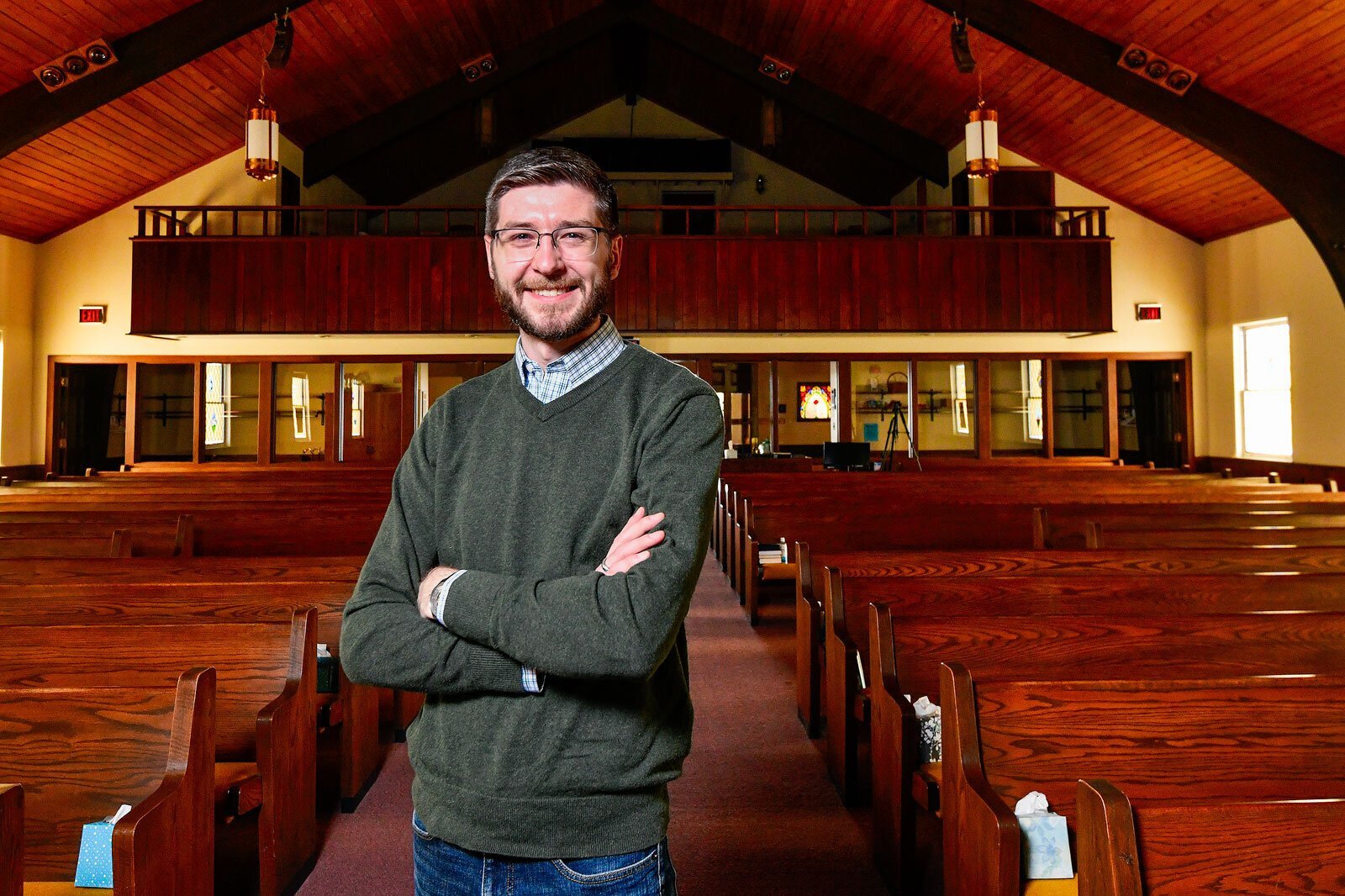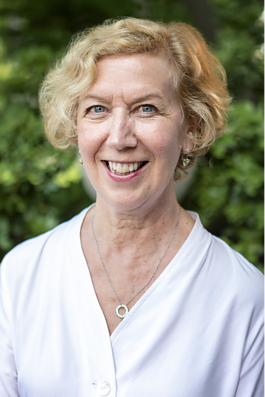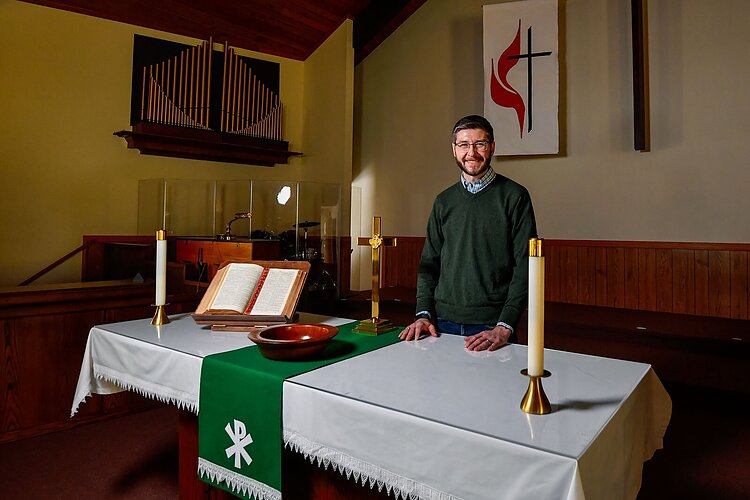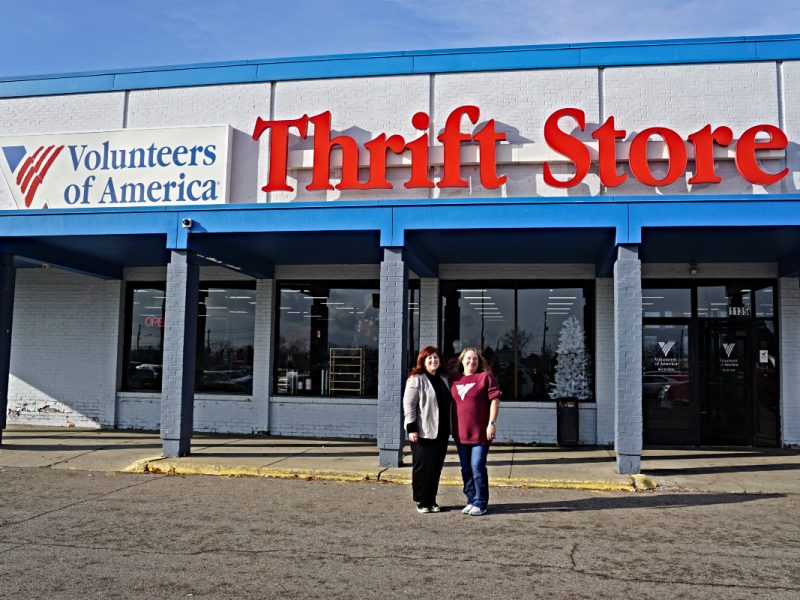Partner Partner Content In rural Washtenaw County, faith leaders work with mental health providers to address COVID impacts
The 5 Healthy Towns Foundation sought new ways to address rising mental health issues in Chelsea, Dexter, Grass Lake, Manchester, and Stockbridge. One solution it identified was equipping faith leaders to help.

This article is part of State of Health, a series about how Michigan communities are rising to address health challenges. It is made possible with funding from the Michigan Health Endowment Fund.
As in much of rural Michigan, residents in the Washtenaw County communities of Chelsea, Dexter, Grass Lake, Manchester, and Stockbridge have struggled with increasing mental health impacts from the COVID-19 pandemic. While the 5 Healthy Towns Foundation, which serves the five communities, had effective wellness initiatives in place before the pandemic, its leadership has sought more ways to address the burgeoning crisis. One solution it identified was to engage and equip Washtenaw County faith leaders to help.
A survey the foundation conducted at the beginning of the pandemic found that 26% of respondents considered a faith organization one of their important ways to stay connected to their communities.

“We’ve always known that our faith communities play an essential, important role in keeping people socially connected and responding to health and wellness needs,” says Lori Kintz, outreach and PR coordinator for 5 Healthy Towns.
5 Healthy Towns asked the National Association for Mental Illness – Washtenaw County (NAMI WC) to facilitate a conference for faith leaders on Nov. 9, 2021. “Emerging from the Pandemic: Faith Leaders’ Role as Shepherds Through a Mental Health Crisis” brought faith leaders from the five communities together with representatives from NAMI WC, Michigan Medicine, St. Joseph Mercy Chelsea Hospital, and Washtenaw County Community Mental Health. Together, they crafted strategies to reach out to the faith leaders’ congregations.
“It was a wonderful opportunity to connect with other faith leaders in the area, to hear what they’re experiencing with mental health in their congregations and communities,” says Pastor Dillon Burns, Manchester United Methodist Church. “To know that what we’re experiencing in my church and our community is really similar and reflective of the larger community, and to know that we’re all working through it and can share ideas and resources, is really valuable.”
5 Healthy Towns originally brought faith leaders together in October 2019 to launch Health Ministry in Action, an initiative that helps support congregations’ wellness in general.
“We were really trying to inspire faith and lay leaders to take a more active role in helping people get connected to wellness resources and live a wellness lifestyle,” Kintz says.
As COVID-19 continued to increase isolation, loneliness, depression, anxiety, substance abuse, and suicide, mental health became a predominant focus.
“It wasn’t just loss of health. It was all the losses and all the grieving that people were experiencing — job loss, loss of homes, loss of loved ones, loss of family traditions, loss of opportunities to travel,” Kintz says. “Those are really important losses for a lot of people.”
“Persistent mental health challenges that show up in every community are so rarely talked about or dealt with,” adds Burns. “We’re looking at churches and faith communities as a valuable place where people are already connected into a community and to be able to use that community as a place to help share resources and help folks with all sorts of mental health things.”
Another project borne of the collaboration, the One Big Connection website, launched to “enhance connections, optimism, resiliency, and engagement in the 5 Healthy Towns region.” Residents can check the website for information, resources, and events supporting their mental health.
“We were able to [post] one of our winter Christmas services on the website: our ‘Longest Night’ service, a night of reflective, quiet worship, … a space that’s comfortable for somebody going through a difficult time,” Burns says. “We had folks come who we haven’t had before.”
Faith-based groups a staple for NAMI
Judy Gardner, executive director of NAMI WC, was not surprised by the escalating mental health crisis in the 5 Healthy Towns region.
“From my personal observations, there’s an increase in stress and anxiety all centered around workforce shortages, children being at home, and parents needing to work. It’s been stressful all the way around,” Gardner says. “We’ve noticed an increase in our participation in support groups. Fortunately, we’ve been able to deal with the uptick in requests.”

She’s seen data that documents similar trends across the country, and has seen NAMI WC deal with increasing calls for help.
“We’re excited because we want everyone to talk about mental health and mental illness. That is one of the pluses of what’s happening during the pandemic,” Gardner says. “We are able to fight more stigma because more faith communities and different cultural communities are coming and saying, ‘Hey, we want to learn more about what this is about. We want to be able to deal better with stress.’ There are resources that you can use to help you weather the storm.”
Nationally, NAMI has long worked with faith communities to share its mental health resources, so it was logical that NAMI WC take part in the 5 Healthy Towns initiative. NAMI has found that collaborating with faith leaders and their congregations is an effective method for reaching large groups of people and educating them about available mental health resources.
“People trust their faith communities. A lot of times, their faith community is their first responders,” Gardner says. “Folks who are experiencing stress or hardship go to their faith leaders for that type of support. We felt that if we partner with faith communities, we could get them the information that we had around dealing with stress and how to handle mental health crises. And they could partner with us to get the word out to the larger community, especially in rural communities.”
Gardner and Burns agree that some faith communities have inadvertently created additional stigma around mental illness. Ideas that mental illness is caused by spiritual forces do still persist, despite the fact that they’ve been dispelled. Or, for example, a current popular idiom holds that one can be “Too blessed to be depressed.” Having a region’s faith leaders collaborate with mental health resource providers is a powerful blow against stigma and misinformation that prevent people from getting the help they need.

“There have been uncomfortable parts of our history, in terms of religion and Christianity, in how we have dealt with mental health – the interplay between somebody having a mental health disorder, and the way that that can get co-opted into a spiritual thing,” Burns says. “That sort of undercuts them getting good care from mental health professionals and can be a really damaging thing. … Mental health professionals have so many resources, so much education, that I don’t have as a pastor.”
“We talked about this frustrating notion of praying it away, but it’s been proven that there are medications that help or talk therapy, if you don’t want to go to medications,” Gardner adds. “Untreated depression leads to suicide. People don’t want to die. They want the pain to stop. We want to reach more people and let folks know that they’re not alone, especially those that are isolated and experiencing depression and anxiety for the first time.”
The younger face of mental illness
Youth have been especially impacted by the COVID-19 mental health crisis. Nationally, more youth than ever report having anxiety, depression, and suicidal thoughts – and more youth than ever are taking their lives. Kintz says these numbers are reflected in the 5 Healthy Towns region. In response, St. Joseph Mercy Hospital – Chelsea will offer Youth Mental Health First Aid training for faith leaders and others.
“We’re very excited because our collaboration is really improving the conversations about mental health in the 5 Healthy Towns,” Kintz says. “The commitments are major from these organizations. We’ve got the mental health millage from the county. We’ve got Michigan Medicine and their whole behavioral health focus. We’ve got the hospitals. And the faith community is just really strong in our five towns. So I think we’ll be strong. We’ll just keep it going.”
Burns agrees — and is thrilled to have mental health resources available for his congregation, young and old alike.
“As a Christian pastor, I think there’s a really strong theological basis for working with somebody’s whole health,” he says. “Caring for people, as I think churches are called to do, absolutely involves every aspect of a person — their physical health and mental health, as well as spiritual health. There’s really no way to separate somebody’s spiritual wellbeing from any other aspect of who they are. To be a place that is healing in any sort of way or supportive of people, I think, really requires looking at the whole person. And that absolutely involves mental health.”
A freelance writer and editor, Estelle Slootmaker is happiest writing about social justice, wellness, and the arts. She is development news editor for Rapid Growth Media and chairs The Tree Amigos, City of Wyoming Tree Commission. Her finest accomplishment is her five amazing adult children. You can contact Estelle at Estelle.Slootmaker@gmail.com or www.constellations.biz.
All photos by Doug Coombe.





